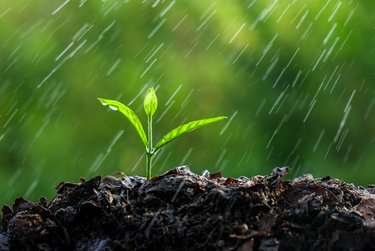Dry weather continues to be on the horizon
By Diego Flammini
Assistant Editor, North American Content
Farms.com
It hasn’t rained much in Ontario and farmers are concerned.
“It’s so dry it just breaks the blades off the plant,” Ron Scheidel, owner of Greenhorizons Sod Farm told CTV Kitchener. “We need water and we need water now.”
The recent mix of hot temperatures and gusty winds has drawn much of the moisture out of the soil. Without the proper precipitation, farmers could see a decline in profits.
“Our sales in the last week because of the dry (weather) are probably half of what they normally are so it affects us big time.”

Some farmers liken the conditions to 1988, when a drought swept through the Prairies, American Midwest and Ontario.
"This early on in the season, we're drier this year than we were that year," Kevin Ross, a cash crop farmer from Essex County told CBC.
Ross remembers because he accompanied his dad on the farm in ’88.
“That year was quite devastating for Essex County. The agriculture economy suffered greatly that year.”
Ross said younger crops without deep roots are struggling, and that the moisture below the soil is helping for now.
Last year, too much rain prevented him from planting more than 100 acres.
Ross said farmers don’t know what to classify as a ‘normal year’ anymore.
According to The Weather Network’s 14-day forecast, Friday, July 1 has a 70 per cent chance of precipitation for Windsor, and Wednesday, July 6 has a 60 per cent chance.
The surrounding days are all 20 per cent or below.